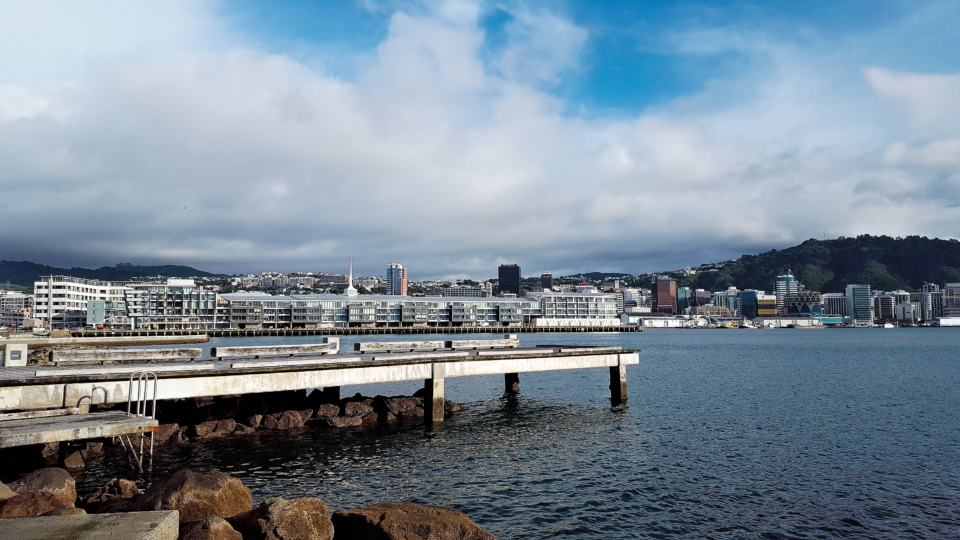Peter Dunne has some political advice for the new Mayor of Wellington.
In a tough battle for re-election as President of the United States in 1948, which many predicted him to lose, Harry Truman decided the best way to defend his record was to attack those preventing him from fulfilling his agenda.
So, he took to lambasting the Republican-controlled Congress as the “Know nothing, do nothing” 80th Congress whenever and wherever he spoke. The tactic worked and was a strong contributor to his stunning victory in the election.
Harry Truman’s example came to mind recently when the newly elected Wellington Mayor Andy Foster all but apologised for not being able to achieve some of his plans, like a return to free weekend parking, because of a lack of support within his Council.
That looks like the first of many battles the centre-right Mayor will lose with his left-dominated Council over the next three years, which could seriously affect his re-election prospects in 2022. Unless, of course, he changes tack and seizes the initiative.
Mayors are always in a difficult position – they are only one vote of many around the Council table.
Mayor Foster’s problem is compounded by the fact that he was not really expected to win the Mayoralty last year, the unrecognised latent unpopularity of his predecessor notwithstanding. However, many of those elected to the Council were more in step with the views of the former Mayor and seem to be taking some time to get over his defeat.
Although their disappointment is no justifiable reason for their apparent intransigence to many of Mayor Foster’s plans, it is at least an explanation of their position.
Wellington City Councils in recent years have had a history of being dysfunctional, often because of disruptive and unreasonable personalities around the Council table.
Indeed, the last Mayor to be able to ride above all the pettiness and achieve what she wanted was Dame Fran Wilde nearly 25 years ago, and it is no coincidence that some of Wellington’s biggest attractions today – the waterfront, the stadium and Te Papa – were products of that time.
Since then, successive Mayors have been to a greater or lesser extent hostages to often hopelessly splintered Councils.
A measure of harmony was reached during the term of Mayor Lester, but that was mainly because a majority seemed in step with his vision, even if the citizens of Wellington showed at the election they were not.
The current Council which still seems to consider itself surrogates for Mayor Lester’s dreams seems destined to restore the dysfunctionality of the past. All of which compounds Mayor Foster’s challenges.
Despite having considerably far more Council experience (he has been there since 1992) than any other Councillor of recent times, he has always seemed somewhat of a loner, without a clear base of support around the Council table.
There is no doubt he has the experience and skills to do the job required, but he now needs to demonstrate those to the Wellington public, as well as his Council colleagues.
However, Councillors’ reactions to the Mayor’s 150 Days Plan show he is likely to get little of their support.
As the city’s leader, directly elected by the people, he might reasonably have expected some co-operation, if not support, from his Councillors. So, rather than apologise for their lack of reason, and appear defensive in the process, the Mayor needs to go onto the front foot, so to speak, and campaign directly to the people of Wellington for his agenda, over the heads of his unresponsive Council.
He needs to make his causes the public’s causes.
In short, Andy Foster needs to become Wellington’s Harry Truman – the people’s champion against a stubborn and unresponsive Council.
He needs to be seen taking the citizens’ fights, on which he campaigned at election time, constantly to a Council which he can increasingly portray as arrogant, aloof and out of touch as they knock him back.
While he is a product of the system, he cannot afford to be seen as the captive of the system. By being the Mayor of Wellington for Wellington who is standing up for his city against a Council that often seems more worried about not upsetting the Beehive, he can succeed.
A quiet chat to Dame Fran Wilde and adopting the Harry Truman approach to his “do nothing” Council should set him on his way. LG



